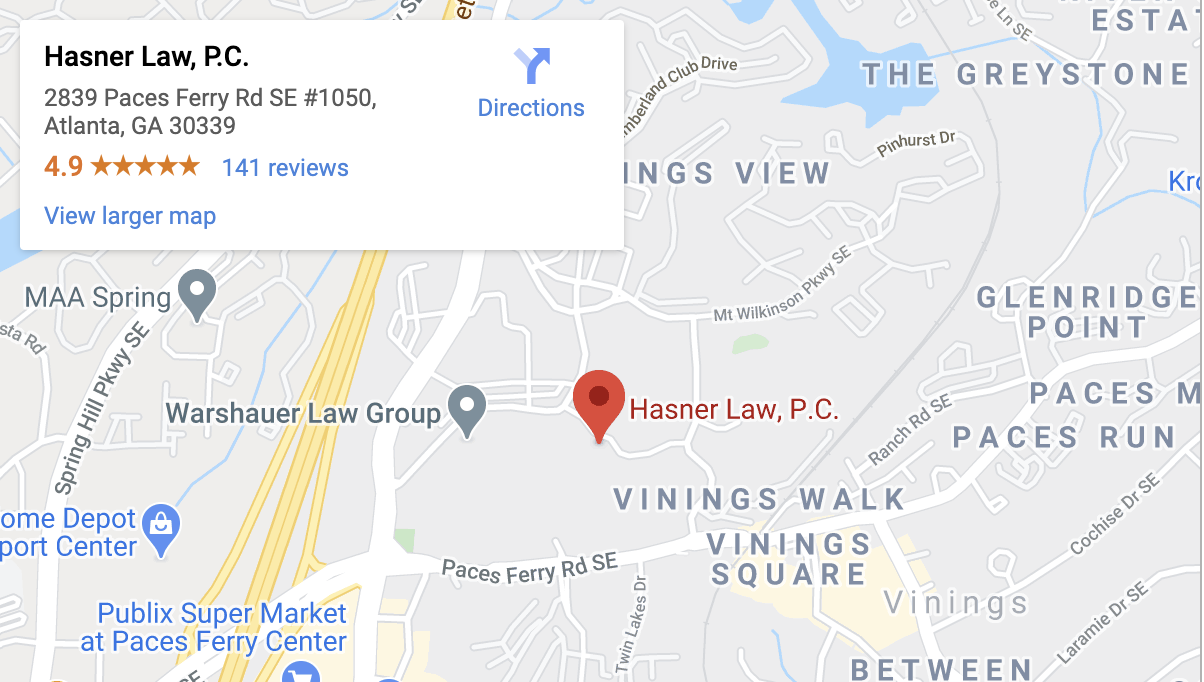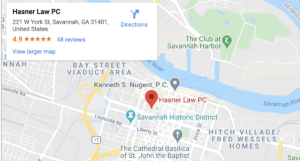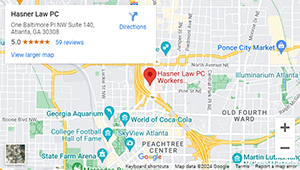Settling a Personal Injury Claim with an Insurance Company

Accident victims may have a long recovery ahead of them. A car accident can cause catastrophic injuries. Some personal injury cases may involve permanent impairments and disabilities.
The pain and suffering after an auto accident can be overwhelming. Therefore, it is important for you to know that you deserve fair compensation for all damages caused by a negligent driver.
In most cases, people settle their personal injury claim with an insurance company for the at-fault driver. However, how do you know if accepting a settlement offer from the other driver’s insurance company is in your best interest?
You can talk with an accident attorney about insurance claims and it is understandable that you may have many questions about potentially settling. Read on to learn more about settling a personal injury claim with an insurance provider.
What are the Mandatory Automobile Insurance Requirements in Georgia?
Georgia is an “at-fault” state for car accident claims. You must prove that the other driver caused the accident to recover compensation for your injuries and losses.
The state requires drivers to carry liability insurance to compensate accident victims when a driver causes a car crash. The minimum amount of liability insurance required for drivers is:
- $25,000 per person for bodily injury
- $50,000 per accident for bodily injury
- $25,000 property damage liability insurance per accident
Drivers may purchase higher amounts of car insurance. They may also purchase other types of car insurance that can help protect them in the event of a car accident, including uninsured motorist coverage and underinsured motorist coverage.
How Do I Settle a Personal Injury Claim with an Insurance Company?
If this is your first car accident, you might be overwhelmed. It can help to understand the process of settling a personal injury claim with an insurance company. Understanding what to expect might help you avoid mistakes that could hurt your chance of maximum recovery.
While every case is different, below are general steps for filing and settling insurance claims. The steps apply to most types of insurance claims in Atlanta, including car wrecks, pedestrian accidents, slip and fall accidents, and other personal injury cases.
1. Report the Injury or Accident
Make sure to report the accident or injury immediately. You want an official record of the accident. Calling 911 is the quickest and best way to report a car accident in Atlanta.
2. Notify the Insurance Company
Notify the at-fault party’s insurance provider of the claim. Your time to file a claim depends on several factors. Generally, it is best to notify the insurance company as soon as possible.
Information you need to file a claim includes:
- Your name and contact information
- The location, date, and time of the accident or injury
- The insured’s name and policy number, if available
- A brief description of your injuries and property damages
Avoid providing written and recorded statements before seeking legal advice from an Atlanta personal injury attorney. You only want to notify the company of your claim. Details of your injuries are provided in the settlement demand letter.
3. Gather Evidence and Information
It is helpful to take photographs and make a video of the accident scene at the time of your injury, if possible. Also, ask eyewitnesses for their names and contact information. Eyewitness statements are valuable evidence that can help prove fault and liability for a personal injury claim.
Keep copies of all documents related to the accident, including medical bills, invoices, statements, and other records. It can also help to take pictures of your injuries throughout your recovery.
4. Continue Medical Care
Seek medical attention immediately after an accident. Delays in medical treatment could result in problems with your insurance claim. The insurance company may argue you failed to mitigate damages or the accident did not cause your injuries.
Do not accept a settlement offer until you complete medical treatment. Until your doctor releases you from care, you cannot determine whether you sustained a disability. Permanent impairments increase the value of personal injury claims.
Consider contacting a personal injury attorney in Atlanta if you sustain catastrophic injuries. An attorney calculates the deadlines to file claims under Georgia’s statute of limitations. Deadlines may be different depending on the facts of your case, such as the parties involved or the type of claim.
5. Document Damages and Calculate the Value of Your Injury Claim
Keep detailed records of all financial losses and expenses related to the accident. The insurance company demands proof of economic damages before it reimburses you for these losses. Examples of economic damages include:
- Medical bills
- Lost wages
- Travel expenses
- Medications
- Therapy costs
- Personal care or nursing care
- Property damages
- Medical supplies
- Other out-of-pocket expenses
You are also entitled to compensation for non-economic damages. These “pain and suffering” damages include physical, emotional, and mental suffering. It also includes scarring and permanent disabilities. You may also claim a loss of quality of life and enjoyment of life.
If you sustained a permanent impairment, do not forget to add future medical treatment and ongoing care costs. You may also include amounts for diminished earning potential and future lost wages if your disability impairs your ability to work.
Calculating the value of damages can be challenging. Financial losses total the actual expense for each item. Pain and suffering damages are more difficult to value. There is no set formula for putting a price on someone’s suffering.
Generally, insurance companies agree to pay two to three times the amount of economic damages as compensation for pain and suffering damages. However, cases involving catastrophic injuries or permanent impairments could have a multiplier of up to five times economic damages.
6. Submit a Settlement Demand Letter to the Insurance Company
A demand letter summarizes the facts of the case, your injuries, and your damages. It explains why the insured is liable for your damages. The conclusion includes an amount you are demanding for settlement.
You might need to include evidence such as:
- Medical records related to the accident injuries
- Photographs of the accident scene
- Statements from eyewitnesses
- Accident reports and police reports
- Statements from your doctor explaining the extent of your injuries
- Proof of loss of income
- Copies of receipts, bills, and invoices for out-of-pocket costs
- Photographs of your injuries
Do not make any statements in your letter that could be construed as accepting any responsibility for the cause of your injury. However, provide details of how the injuries have impacted your daily life. Ask for more money than you are willing to accept to settle the case to leave room for negotiation.
7. Wait for the Insurance Company’s Response
The insurance company may deny or accept your settlement offer. Typically, the company issues a counteroffer. If the counteroffer is more than you were willing to accept, you are ready to settle the claim. If not, issue a counteroffer to the insurance company.
8. Get Help with your Personal Injury Claim
If the insurance company refuses to pay you what you believe your injury claim is worth, seek legal advice immediately.
Also, you might want to talk with a lawyer immediately after an accident or injury if:
- The insurance company ignores your claim or refuses to investigate the claim
- The company denies your claim without providing a reason why
- The insurance provider unnecessarily delays the claim
- Your child sustained injuries
- Your claim involves a permanent impairment or disability
- Multiple parties are involved in the claim
- Your claim involves a government entity, commercial trucking company, defective product, premises liability claim, or medical malpractice
- You are being blamed for the cause of your injury (contributory fault claims)
Keep in mind that you give up your right to file a lawsuit seeking damages once you sign a settlement agreement. The settlement agreement releases ALL parties from ALL claims, including known and unknown parties and claims.
Contact Our Atlanta Personal Injury Lawyer for a Free Consultation
You do not have to deal with an aggressive insurance adjuster alone. You can get help settling a personal injury claim. Call our law firm to schedule a free consultation with an experienced Atlanta personal injury attorney.






